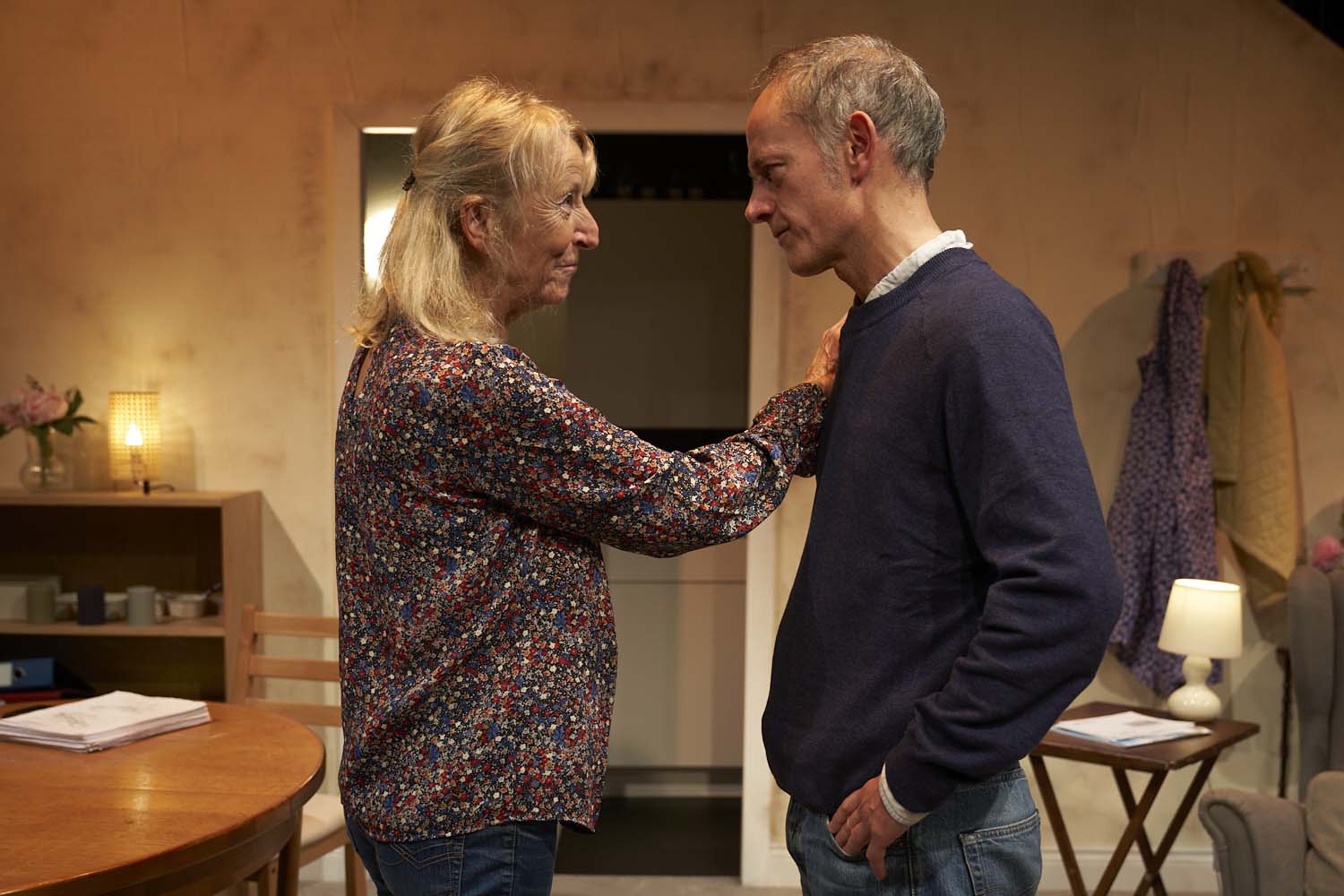Author Marilia Samper is a quite multinational. She was born in São Paulo in 1974, to a Brazilian mother and a Sevillian father. The family moved to Seville in Spain when she was 12 years old, where Samper grew up. She has remained in Spain ever since. Still an adolescent, she was already involved with the theatre, with Sevillian companies like Viento Sur Teatro, as well as the Andalusian Theatre Centre. Later, having received a degree in Stage Direction and Theatrical arts at the Institut del Teatre (Barcelona) she has continued to develop as an author and director and now resides in Barcelona
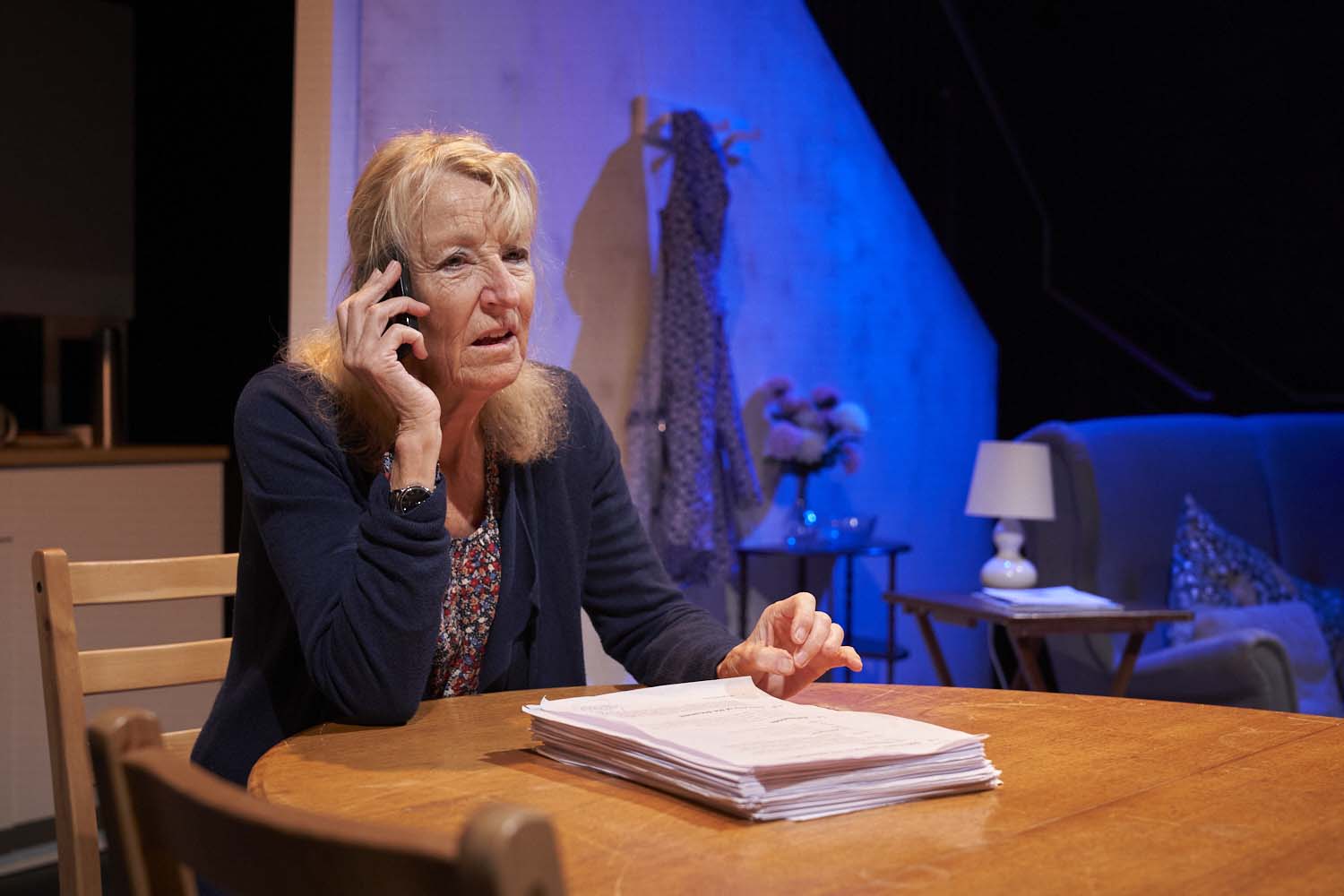
Jeryl Burgess as Julia
Samper describes her passions in the Fabulamundi website: -
“I’m interested in human nature and that which moves people to act, sometimes, in strange ways in certain situations. In my writing I try to explore those dark corners of the individual, to delve into their fears, their obsessions, their desires, always from a recognizable context, in which the spectator can feel themselves identified, but leaving a space for the imagination and the poetic. My writing is visceral, because I like to talk about what hurts: about pain, about loneliness, about death, about violence, because those are my fears and also the fears of all of us.”
This totally sums up the essence of her play Happiness at the Cervantes Theatre. The beautifully succinct translation by Steven Capsuto, gives the play some local English colour and a powerful London flavour. The ‘Happiness’ condominium where the story unfolds is isolated and lies far outside the city centre. Speaking on November 7th, the opening night in London, Marilia Samper explains where the idea came from : -
Marilia Samper: -
“This play emerged from conversations that I had with other authors on the problems of class. I was brought up in a working-class environment, and I was often distressed by some pejorative comments that the artistic and even the intellectual milieu, sometimes expresses for the working- class. This bothered me very much, so that, in reality, this work has come from the need to talk about the context in which I was brought up and to defend the strength and the fortitude of those people that have so little… then the question of disability arose and I thought what would be the worst possible scenario for a family in poverty? I realized it was disability, especially when there is no access to resources that other, more privileged people, might have access to. I tried to put myself in that situation.”
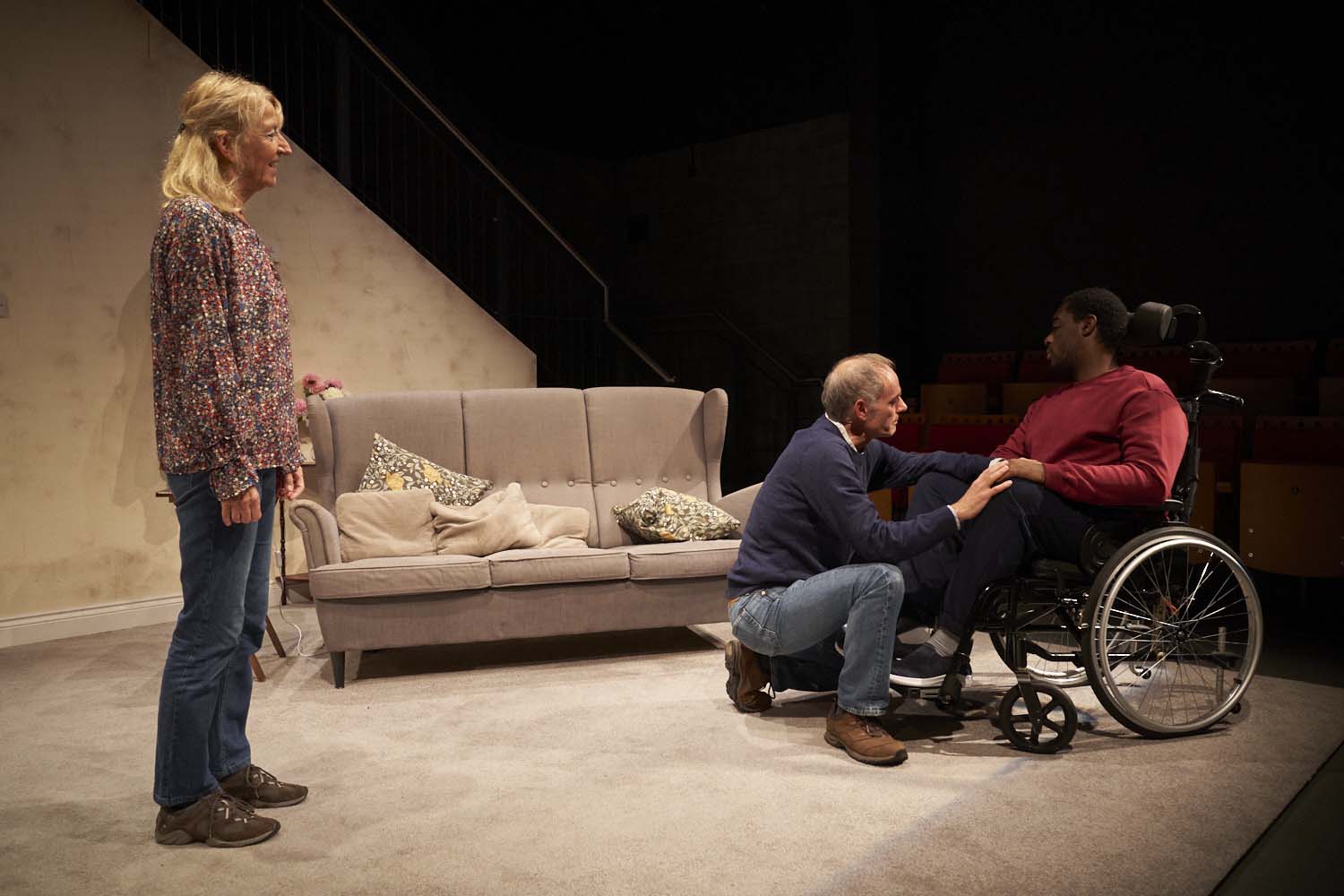
Jeryl Burgess, Howard Teale and Reece Pantry
Julia, a dedicated and struggling mother (in a superb performance by Jeryl Burgess) has to travel over 90 minutes to work every day. She cannot afford to quit, for she has a severely disabled son, Eli (a powerful Reece Pantry). Eli has grown big and Julia has grown frail and is no longer able to carry him down a mere nine steps to open up his world and stop him being a prisoner in his home: “so he can feel the sun on his face and the wind in his hair.” Julia is determined to create a ramp to help her out and fights endlessly to obtain it. This leads to a nasty confrontation with the other residents of the block, one also played to great effect by Reese Pantry.
Another resident is Vera (Maria De Lima) an educated translator from a higher class, who is upset at having come down in the world. She nevertheless spends her time leeching off Julia at every opportunity, or Ramón (Howard Teale) who owns much of the building and struggles to keep the peace, while being horribly tormented by his own abusive wife.
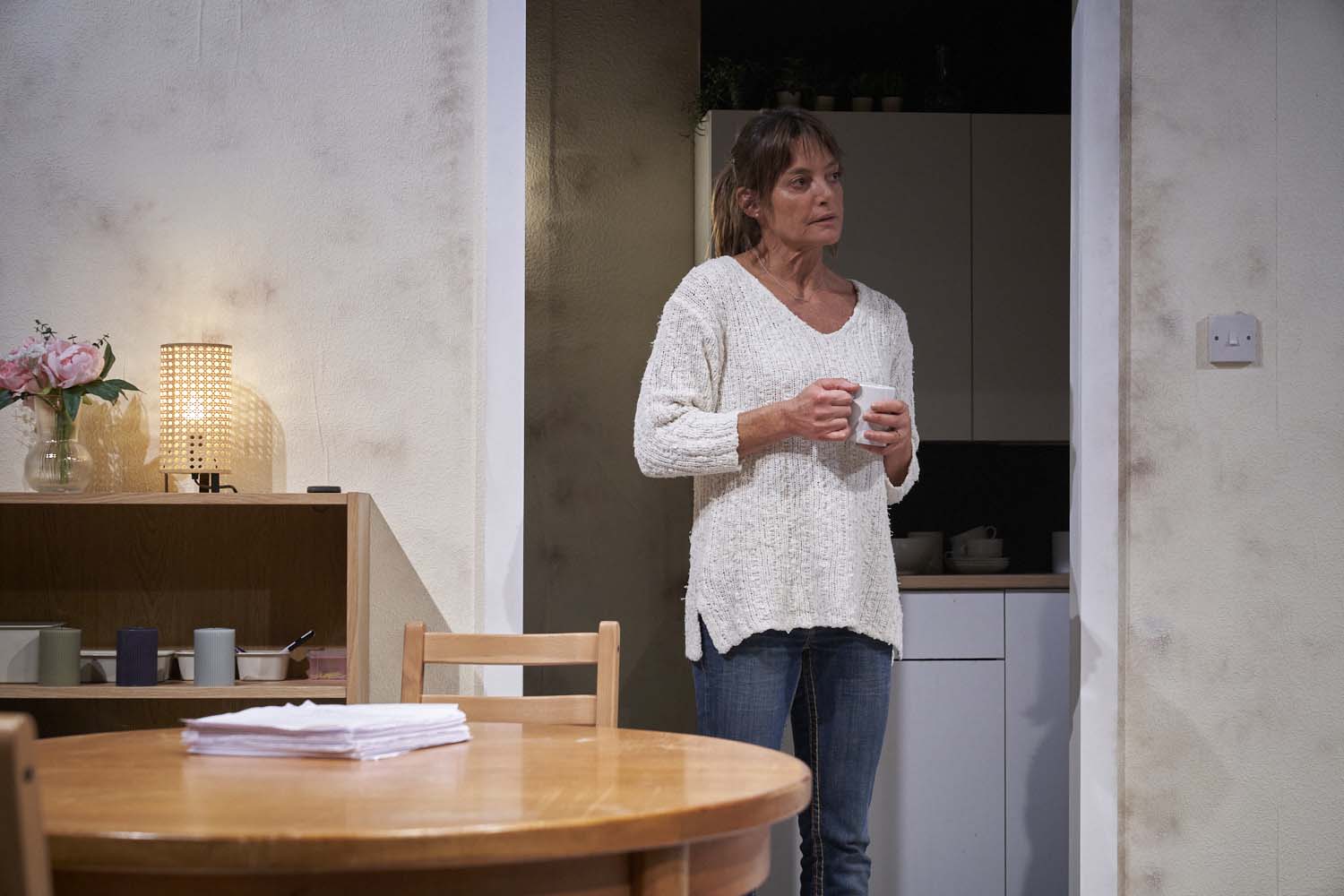
María De Lima as Vera
Everyone is only interested in fighting their own corner, while Ramón, a good but weak man, tries, in vain, to placate them all. Friendships are tested to the brink and good will flies out of the window.
Samper is particularly delighted with the Cervantes Theatre as a venue, thanks to the 3-sided shape of its auditorium, which, also being small ads an element of intimacy, and immediacy, which is essential for this kind of production.
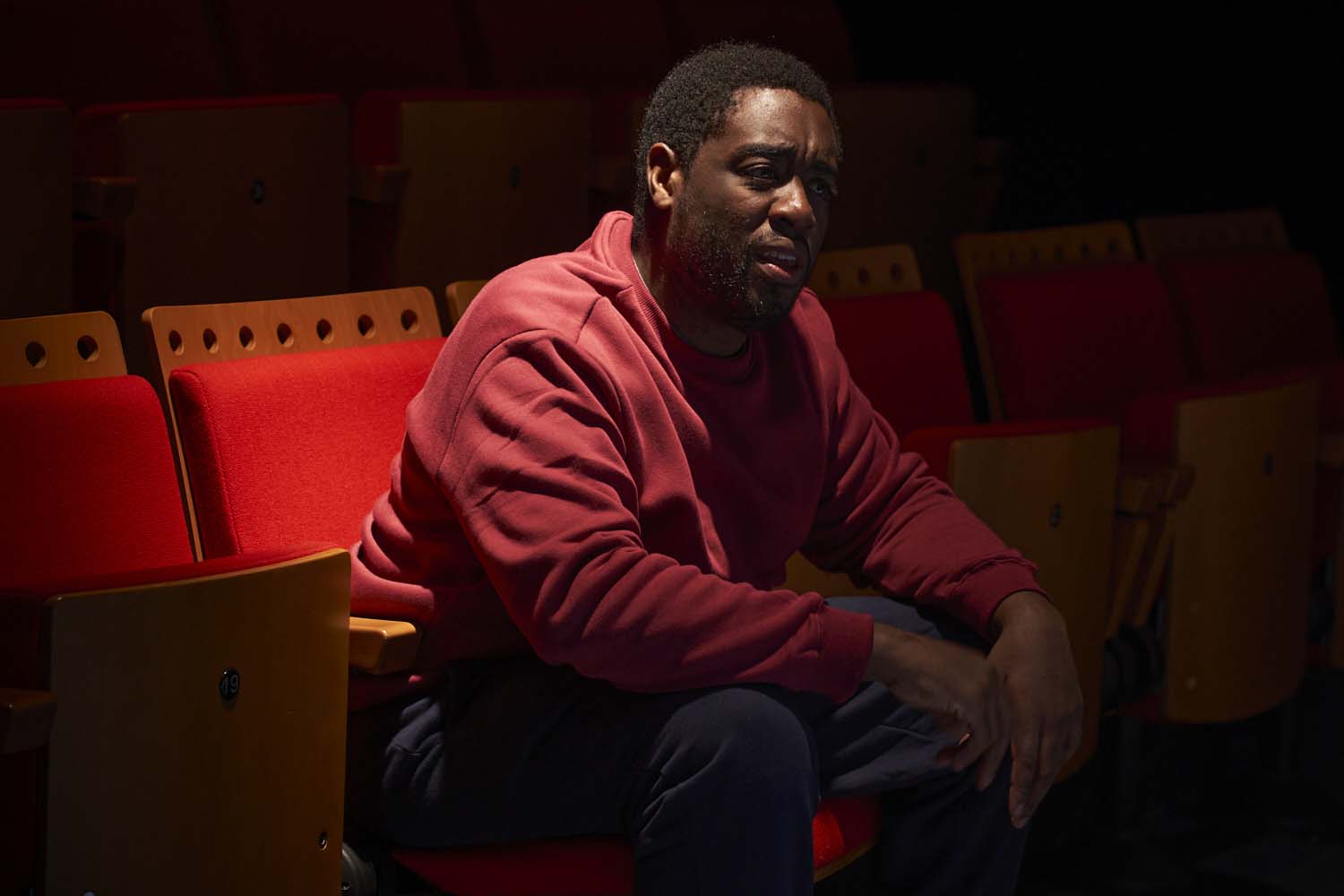
Reece Pantry as one of the objecting residents of the block
One interesting theatrical device that Samper has used to great effect is that the disabled Eli, while trapped in his body for the other members of the play, opens up to the audience in an unexpected and original way: -
“This arose after I started researching this disability. I was interested that the character was in a very conflicted situation. [I needed to find a way] to express what I wanted to say, which was about the need for people to support each other in a community, and to stop living in such an individualistic manner. I, therefore, needed my character to be in the worst possible situation and, remembering that that he was unable to communicate verbally, I came up with a wonderful theatrical device whereby I could give him the gift of language and he would become the narrator. Especially because a person in that situation can still see and hear in the real world… they hear everything… so being the [constant and] silent observer, I thought he would be the perfect narrator. Who else would tell us that story?
The play is set in a condominium that is way out, on the outskirts of a city. As an inspiration, Samper took a similar place, just as isolated, that lies near Barcelona. It is placed high up, in a very inaccessible place and very far from the centre of town.
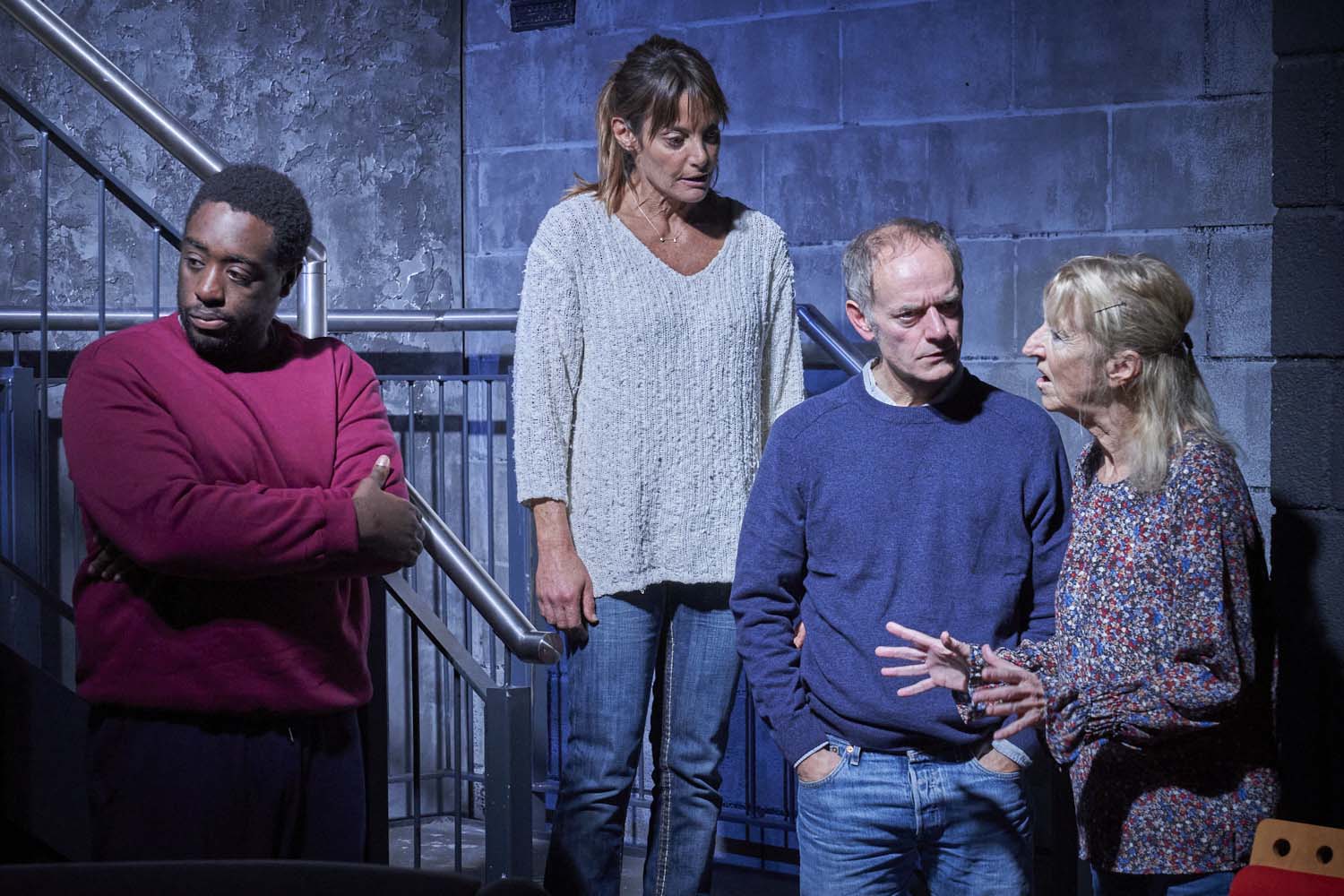
Reece Pantry, María De Lima, Howard Teale and Jeryl Burgess
When this moving play was presented in Spain, it was hugely successful as it touched on universal themes: - "The play resonated with many people because they, or some relative, had lived through a similar experience.”
HAPPINESS will be on at the Cervantes Theatre until November 19th 2022
CERVANTES THEATRE CAST & TEAM
Director:Paula Paz / Set & Costume: Jack Valentine / Lighting Designer:Robert Price / Sound Design: Yaiza Varona.
CAST: Eli: Reece Pantry / Vera: Maria De Lima / Julia: Jeryl Burgess / Ramón: Howard Teale


